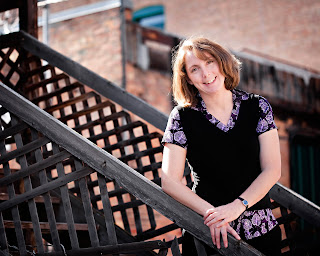Wednesday, August 31, 2011
Ask O: How Do I Find Just the Right Name for My Characters?
Good morning! Ocieanna here. It’s Ask O Wednesday, the time when I answer your questions about writing. Fiction, nonfiction, plot, setting, research, character development—anything you want, I'll try to answer! Write me a note with your question and I'll give it a go.
This week’s question: How do I find just the right name for my characters?
That’s an important and sometimes difficult topic because names matter—are worth thinking about, discussing, and refining. I want my characters’ names to do something—exactly what can vary—but overall, I want them to resonate with my readers.
How do we christen our characters? Here are some techniques I’ve found as well as some “Why’s”.
Poor Asheley Wilkes
Sometimes we pick based chiefly on how a name sounds. A well-toned moniker helps readers relate to the carefully crafted players in our stories. Consider some familiar characters. From Pride and Prejudice, Bingly chimes of happy congeniality; Darcy sounds dark. In Gone with the Wind, Scarlett O’hara fits perfectly, as does Rhett Butler. And don’t forget poor Asheley Wilkes—what hope did he have with that flimsy name?
To work through this process, I throw names on my characters like changes of clothes. Does Bubba McFlat fit? No. How ‘bout Charlie Prince? Not really. Jonathan Kirkpatrick. Yeah, that one’s pretty good. Dickens mastered this. Ebeneezer Scrooge—what name could sour the ears better? And Fezziwig rings of a jolly party thrower. Little Tim? Can’t help but feel sorry for the sweet tyke.
Why? Picking names based on sound adds another tool to give the reader a deeper sense of satisfaction with our stories. On the flip side, an ill-fitting name distracts and annoys.
Find the Hidden Meaning
My husband recently read Uncle Tom’s Cabin. “Honey,” he said, his voice full of thought, “I think the character Evangeline represents the gospel.” (Evangel means gospel. How smart is he?) Lots of names are pregnant with meaning. Did you know Aslan means lion in Turkish? And think about Scout Finch from To Kill a Mockingbird. Scout—she’s scouting out the truth. Or a strong leader might have the name, Leo, suggesting lion.
If you have a well-defined character, make a list of his or her traits. Then go to a baby names web site and look up names that go with the meanings you’ve listed. You It’s sure to spark your creativity.
Why? Layers, layers, layers. Giving our characters meaningful names adds the yummy depth that keeps readers coming back for more.
Do I Know You?
Another name-picking device springs from allusions to well-known characters. Remember Francine Rivers’ book Redeeming Love? The hero’s name was Michael Hosea—and, well, the book’s patterned after the biblical story of Hosea.
I’m sure Moby Dick author Herman Melville had a purpose in naming his monomaniacal captain after evil king Ahab. In the book Ella Enchanted, the hero and heroine’s names are, Ella and Char. It took me till the last chapter to figure out she was pointing me to Cinderella and Prince Charming. I’m a little slow.
A twist on this is naming characters with the first letters of their famous precursors’ names. In East of Eden, John Steinbeck’s twins Cal and Aron coincide with Cain and Abel, which they represent. Liz Curtis Higgs’ Scotland-set novel, Thorn in My Heart, mimics the lives of Jacob, Rachel, and Leah. Her corresponding character names begin with the same first letters.
Why? Allusion is a time-tested literary device. Using it in the name-picking process gives readers a clue—one perhaps no one else will notice (or so they think)—to the character’s true identity.
Quick Tip
Reminder: Be careful that your characters’ names fit the time period they live in. You wouldn’t want an American Revolution era gentleman named, Biff, or a World War II lady called Madison.
Though naming our precious characters can be challenging, finding the most fitting names not only adds layers of depth and meaning, it’s also satisfying as a writer.

